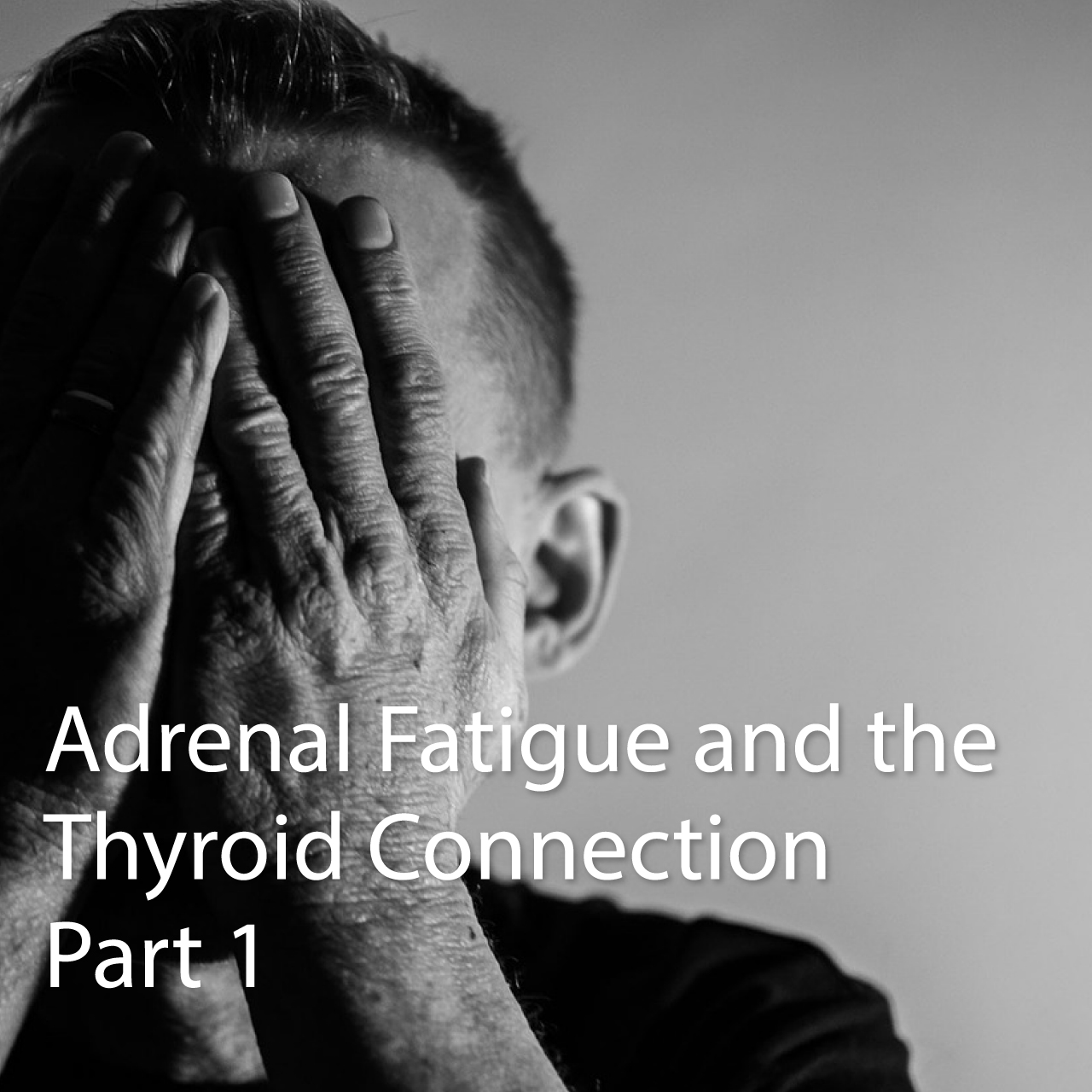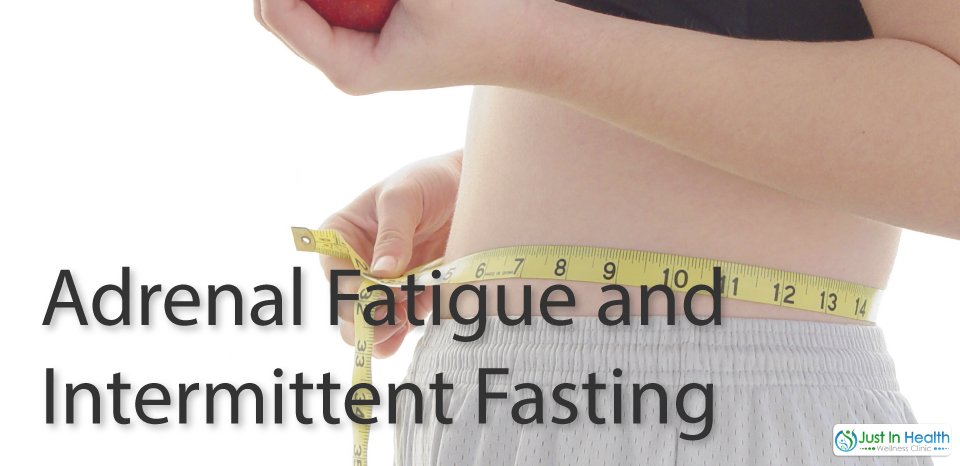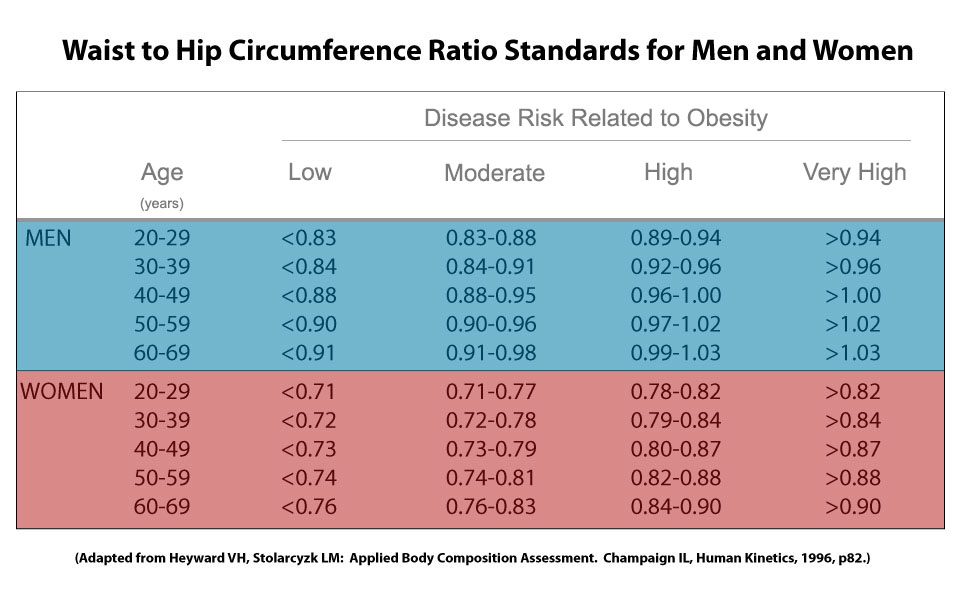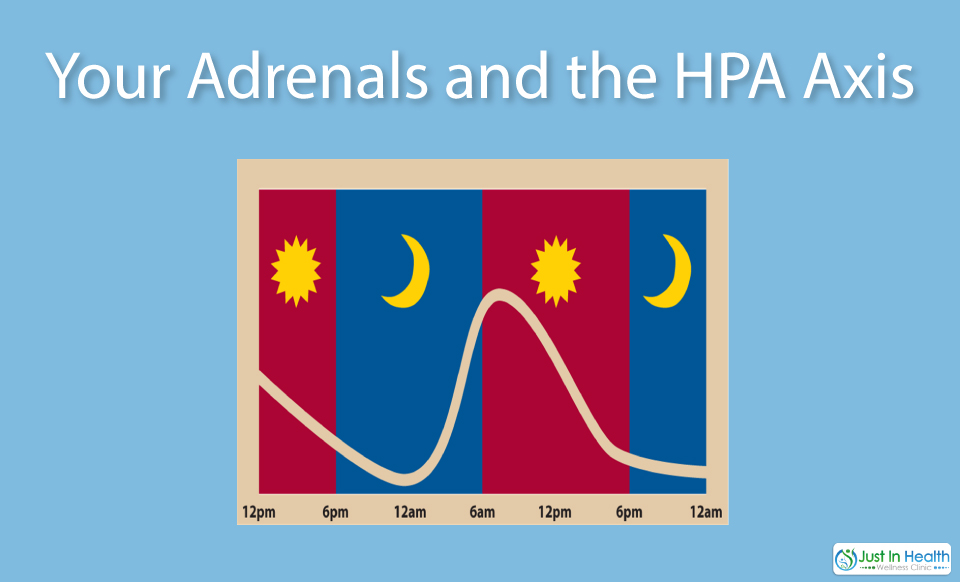

Your adrenal and thyroid glands produce certain hormones that allow you to have optimal energy, health, and metabolism. When these hormones are out of balance, symptoms like fatigue, depression, and weight gain are common.
Cortisol is one of the first hormones to go out of balance when you are not managing the physical, chemical, and emotional stressors in your life properly. Cortisol is a glucocorticosteroid. I know this is a really big word, but when you break it down, “gluco” means pertaining to or regulating glucose (blood sugar) and energy. The more your blood sugar goes up and down throughout the day, the more your adrenal glands have to come to the rescue to stabilize your blood sugar. Therefore, over time if your blood sugar isn't stable (because of missing meals and/or poor food choices), your adrenal glands will have a difficult time regulating it, and thus your energy levels will start to decline.

If you have adrenal fatigue and/or low thyroid function, intermittent fasting is one of the worst things you can do. Your body's ability to regulate blood sugar is already unstable; therefore, stressing the system even more puts additional undue stress on the fatigued glands.
I understand the health benefits regarding intermittent fasting and stimulating cellular autophagy, but my professional opinion is to fix the adrenals first and thyroid second (typically done together, yet thyroid hormone can drive cortisol lower). In other words get healthy first and then you can partake in this excellent therapeutic modality.
As your energy starts to go down, your adrenal glands can have a difficult time regulating inflammation. The second part of the word glucocorticosteroid is “corticosteroid.” Corticosteroids' main job is to help squelch out inflammation in the body.
You may have heard of corticosteroids in the form of cortisone injections, which are used to relieve various painful areas of the body; hydrocortisone creams for chronic rashes and skin inflammations; or cortisone inhalers which are designed to dilate the bronchioles to help improve breathing for asthmatics. These are all examples of how conventional medicine treats the symptoms of adrenal fatigue and inflammation, but it does not address the root cause. It's important to note that all of these medications have side effects if used for prolonged periods of time. In other words it's in your best interest to figure out why you're chronically inflamed and not just rely on a medication long-term that is only covering up symptoms.
Want to know if you can benefit from intermittent fasting? Click here to find out.
If the body is chronically inflamed, cortisol can help abate the symptoms for a while. In the end, however, the chronic insidious inflammation will overcome the adrenal glands' capacity to manage it unless the underlying cause of the stress is discovered and addressed.
That's why as cortisol becomes more and more out of balance over longer periods of time, eventually fatigue, weight gain, allergies, hormone imbalances, and chronic pain inevitably set in. So if you are a person with any of these symptoms, looking deeper into the function of your adrenal glands will be a necessity.
First objective indicators of cortisol imbalances: The waist-hip ratio can be an excellent tool to assess this. Simply divide your waist measurement in inches by the measurement of your hip in inches. You can compare the results to the chart below.
I do find some patients who are skinny with severe thyroid imbalances and adrenal fatigue. So if you do have any of the above symptoms and have a normal waist-to-hip ratio, I strongly recommended getting an adrenal cortisol rhythm assessment as well as a full thyroid panel.

Second objective indicator and gold standard: This rhythm test measures cortisol at various times throughout the day so the total amount of cortisol can be assessed along with the rhythm of cortisol. Most medical doctors are looking for disease-based pathologies regarding cortisol function. Diseases such as Addison's or Cushing's are normally assessed using an ACTH stimulation test, and if you're not in this diagnostic category, you are told your adrenal glands are normal.
This couldn't be further from the truth. Conventional medicine is operating in a disease-based paradigm while functional medicine is operating on a spectrum-of-health paradigm. The goal of functional medicine is to look at your overall health on a spectrum with the number-one goal in mind to address the root cause of your underlying health challenges so you can experience health at the highest level.

Cortisol should be highest in the morning to help provide the energy to get out of bed and function, and it should be lowest at night so we can relax and go to sleep. When this rhythm is off, it's a sign of stress in the body. It's essentially a sign that the brain has lost communication with the gland. This would be akin to a thermostat breaking and losing the control of the AC or heating units in the house.
The stress that occurs disrupts communication between the brain and the thyroid and adrenal glands. The whole goal of supporting someone's thyroid and adrenal glands is to help take the stress off the glands and to help establish the connection and rhythm from the brain back to the glands. This can be accomplished using specific nutrients, precursor support hormones, and herbal medicines to help jump-start the system. These natural medicines need to be prescribed specifically to the patient's needs, ideally based off of the patient's clinical presentation and lab tests.
The adrenals are intimately connected with the thyroid gland. As the adrenal glands start to dysfunction, so does the thyroid gland. Healthy adrenal glands are responsible for thyroid-hormone conversion as well as the thyroid hormone getting into the cells' receptor sites. This is why many people who are on thyroid-hormone replacement, whether bioidentical or synthetic, still may have thyroid symptoms—because their adrenals are still being ignored.
If you're having a difficult time losing weight, one of the most important things you can do is to assess your thyroid and adrenal glands to make sure they are functioning at optimal capacity. The people I find who have the most difficult time losing weight tend to be people who have both thyroid and adrenal fatigue. I find the individuals who are in adrenal fatigue yet still have good thyroid function can stay pretty lean.
If you need help getting your adrenals back on track, click here!